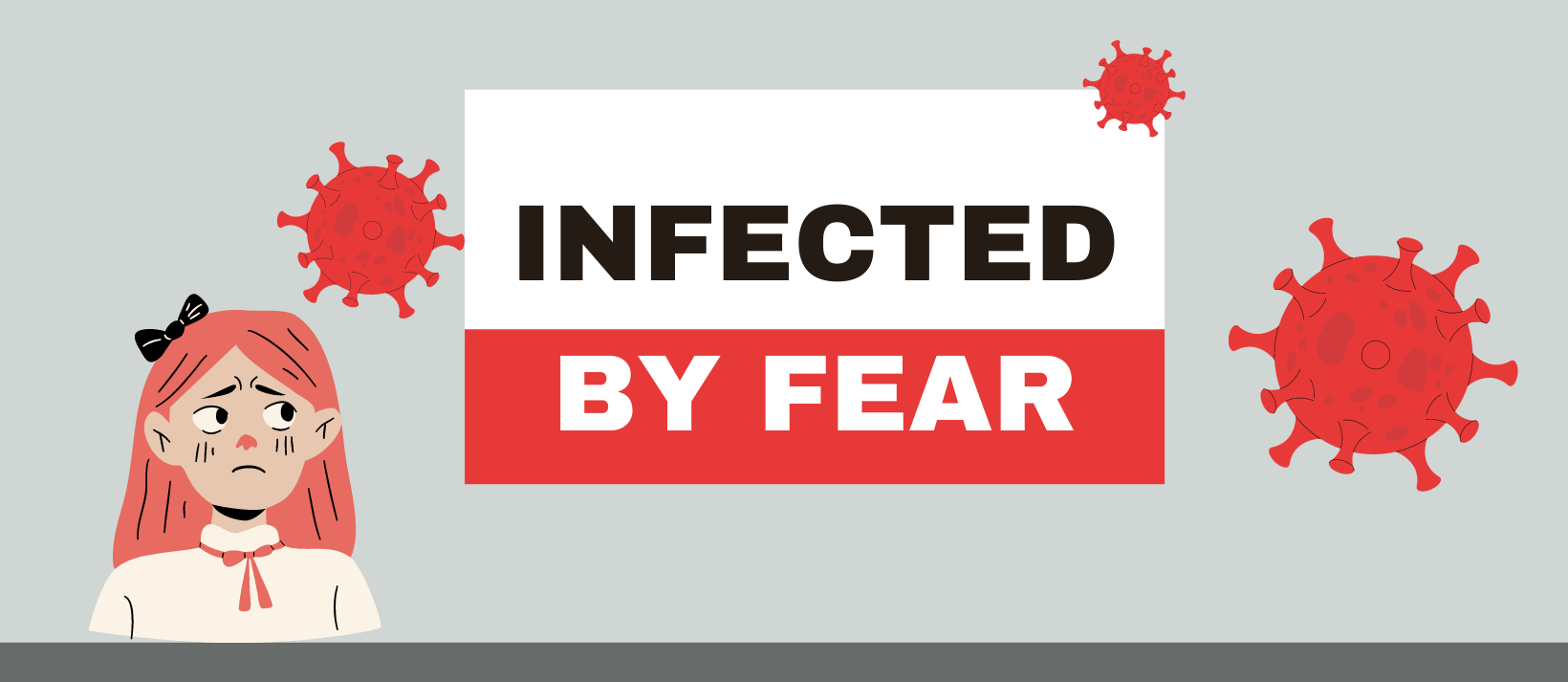
Infected by fear 26/01/2022
Titipatima Sakulterdkiat, MD. PhD.
In the midst of the COVID-19 pandemic in Thailand, when many are faced with the fear of..
being exposed and becoming infected with SARS-CoV-2
transmitting the virus to loved ones
vaccination safety, availability and effectiveness
and extended lockdown contributing to economic uncertainty (just to name a few)
It takes every ounce of sanity to remain calm. Every fiber in your body to stay positive. Every part of your soul to remain hopeful that this pandemic will pass and all your loved ones will stay safe. But the loss is overwhelming. The loss of social engagement. The loss of friendly face-to-face interactions. The loss of physical contact as simple of hugs and handshakes. We take for granted how much of a social creature we all are and that humans require social interactions to thrive. We take it all for granted, that is, until SARs-CoV-2 came along. No matter how much of a recluse you are, you will eventually be affected by the impact of COVID-19. SARs-CoV-2 physically infects the lung leading to severe inflammation and destruction of the lung parenchyma but also infects the mind with fear. Fear stimulates the sympathetic fight or flight response that allows you to appropriately assess and handle the danger in front of you. Your mind rapidly calculates the necessary action to stay alive and your best chance of survival. Fear keeps us alive. But too much fear stresses the body physically, mentally and emotionally. Physical stress can take the form of aches and pain in various parts of the body especially in the upper region such as head, neck and back. Mental and emotional stress can take the form of mood and habit changes, loss of appetite, loss of interest, and even depression.
So when do you need help? >> If you or your loved ones have the following symptoms that persist daily or for most of the day for at least 2 weeks:
- Change in appetite leading to excessive weight loss or gain (>5% of your normal weight in 6 months)
- Insomnia or hypersomnia
- Psychomotor agitation or retardation
- Suicidal ideas or attempt
Where can you get help? >> Consultation with physician at Department of Mental Health of Thailand call 1323 or Line @1323FORTHAI or scan QR code below:

So, remember to take care of yourselves physically by adhering to D-M-H-T (Distancing, Mask wearing, Hand washing and Temperature check) but also be mindful of the mental and emotional toll.
Be aware that social distancing ≠ social isolation!
Remain socially engage at a safe distance, talk to friends and family as well as find time to relax.
On behalf of the Pathobiology Department, we all wish you to be safe in the midst of this pandemic.
| ที่อยู่ | : ภาควิชาพยาธิชีววิทยา คณะวิทยาศาสตร์ มหาวิทยาลัยมหิดล 272 ถนน พระราม6 แขวง ทุ่งพญาไท เขตราชเทวี กรุงเทพมหานคร 10400 |
| เบอร์โทร | : 02 201 5550 |
| อีเมล์ | : Mahidol@Mahidol.ac.th |
